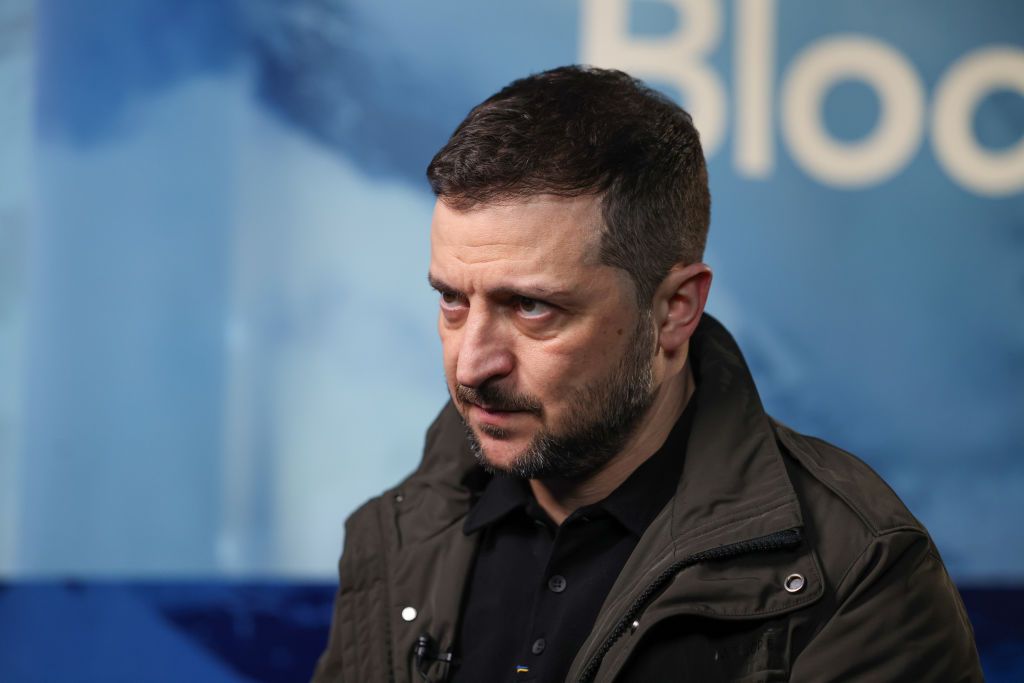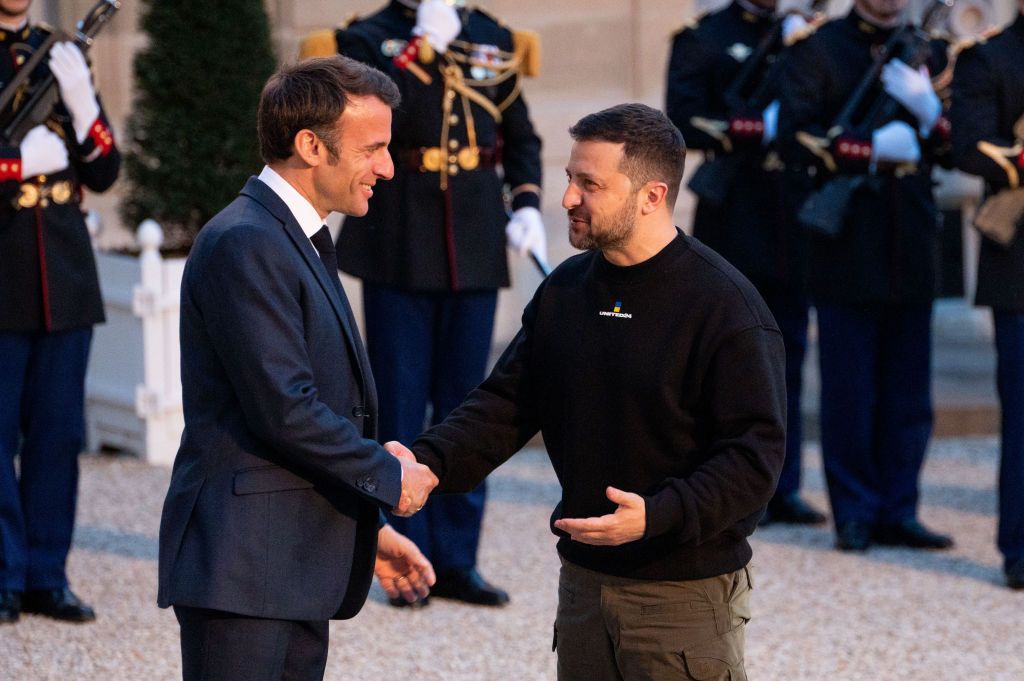President Volodymyr Zelensky held separate meetings with French President Emmanuel Macron as well as European Council President Antonio Costa on Jan. 27 in Krakow, Poland amid a visit to commemorate Holocaust Remembrance Day.
During the session with top European officials, including Costa, Zelensky discussed a variety of topics, including additional sanctions as well as the supply of additional ammunition, the Presidential Office said.
"We need to continue putting pressure on (Russian President Vladimir) Putin, and sanctions are one of the truly powerful tools," Zelensky said.
Earlier in the day, European Union foreign ministers approved the extension of sanctions against Russia for another six months.
According to the read out of the meeting, the anticipated 16th EU sanctions package was "one of the key topics of the meeting." The Council of the EU adopted on Dec. 16 its 15th package of sanctions against Russia, targeting the Russian shadow fleet of tankers and the military-industrial complex.
In addition to sanctions, the leaders discussed the details of a new ammunition supply initiative, with additional informal meetings scheduled for Feb. 3.
Later in the day, Zelensky met with Macron to discuss "security cooperation" amid anticipated peace negotiations in the coming months.
Macron has reportedly spearheaded prospects of sending European peacekeeping forces to Ukraine, amid U.S. President Donald Trump's commitment to "end" the war.
No details were provided on the specifics of the discussions between Zelensky and Macron, although the Presidential Office read out notes that "possible formats for security guarantees for Ukraine" were discussed.
Earlier in the day, Zelensky expressed to Costa and European officials the need for a "just and lasting peace" following peace negotiations, echoing previous statements on Europe's full participation in peace negotiation.
"We will stand with you for as long as it takes," Costa concluded.
Russia has thus far opposed the presence of NATO peacekeepers in Ukraine, with Russian Foreign Ministry spokesperson Maria Zakharova claiming on Jan. 24 that it could lead to "uncontrolled escalation."














